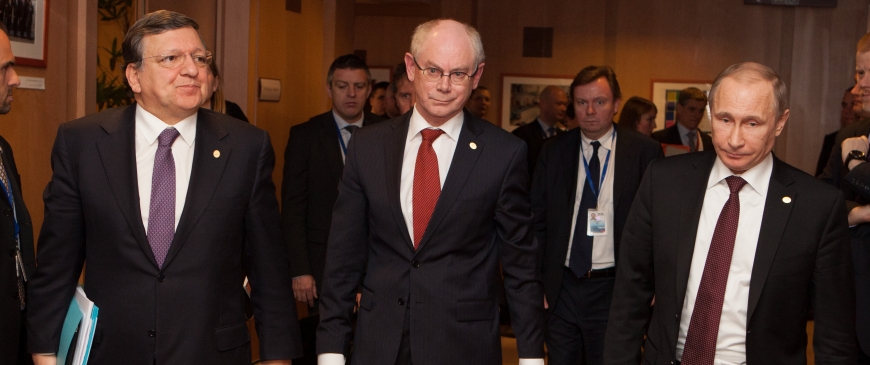
In confronting Russia, Europe tests its union
Charles Grant, director of the pro-EU Centre for European Reform in London, said the crisis has shown EU states "can achieve more by concerting their efforts than by acting separately."
That should, he said, have an influence on whom the EU chooses to succeed Catherine Ashton as foreign-policy chief. "Russia is so important that if you put a very inexperienced person in the job, they would be made mincemeat of" by Russian Foreign Minister Sergei Lavrov.
...Mr. Grant says that to achieve unity over Ukraine Germany has shifted toward the middle ground and away from its traditional pro-Russian stance. "One consequence of the Russia-Ukraine affair has been that Germany has emerged as the new leader of the EU, not only in economic policy, but in foreign policy too," he said.
